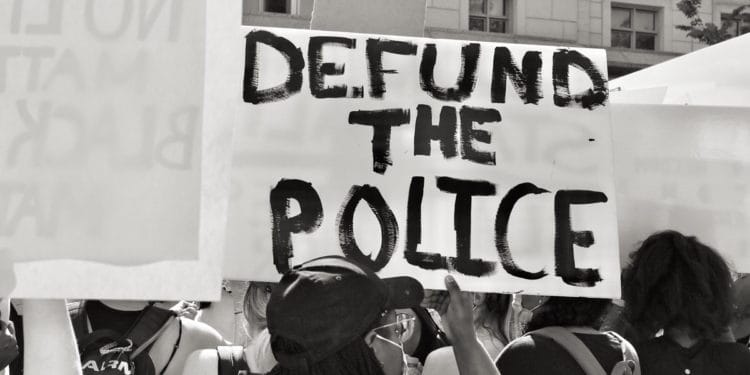Were it not for the pandemic, public outrage over the death of George Floyd’s and others at the hands of police — and the firestorm of protests across the country it launched — would be the biggest story and public policy crisis of the year. But, as in any crisis, there’s danger in mistaking the loudest voices on either side for what a broader swath of the public believes.
So what does the public think about policing and police reform? A Pew survey conducted in late June provides a snapshot.
Most Americans Don’t Want to Defund the Police: Forty-two percent of respondents are happy with the current status of funding for police, with a higher percentage (31%) supporting an increase in funding vs. 25% who want to see funding decreased. Only 12% want to see the amount decreased significantly.
Bipartisan Support: Despite headlines to the contrary, there’s broad support for a basket of local and federal reforms:
- More than 60% of individuals in Pew’s poll believe civilians should be able to sue police officers for excessive use of force.
- Seventy-five percent would support civilian oversight boards to investigate officers accused of misconduct, including the use of excessive force.
- Seventy-four percent would like to see officers required to live in the area they work in.
- Ninety percent or more support creating a federal database to track misconduct by police officers and more training on non violent police tactics.
A Shared Concern: Too Much Police-Union Power. Across the political spectrum, some are questioning the special-interest role of police unions. Would-be reformers see several areas of focus:
- Limiting or prohibiting collective bargaining for police or, at the very least, making the process transparent as 25+ states, as well as many cities and counties, have already done. In many states lacking collective-bargaining transparency legislation, there’s still legal room for city leaders to open up the process.
- Rolling back well-intentioned “law enforcement bill of rights” legislation that makes investigations of abuse by police officers harder to undertake.
- Eliminate or water down contract provisions that expunge an officer’s disciplinary record.
- During contract negotiations, focus on reducing the reliance on arbiters – something 70% of police-union contracts contain. The problem: Arbiters can often overrule decisions already made by elected officials or supervisors.
Key Takeaways: The new focus on policing is an important political and cultural moment, but city leaders have many tools beyond wholesale cuts or restructuring. Opening the collective-bargaining process to the public, giving cities tools to identify and track bad officers and keeping the power to discipline well outside of police-union control would all create a local law-enforcement apparatus that’s not only more effective, but also more trusted.
- The Case for Adopting COIN “Civic Openness in Negotiations” Ordinances
https://calocalelectedofficials.org/the-case-for-adopting-coin-civic-openness-in-negotiations-ordinances/ - Concepts to Eliminate From Police Union Contracts and Model Ordinance Language
https://www.joincampaignzero.org/contracts









